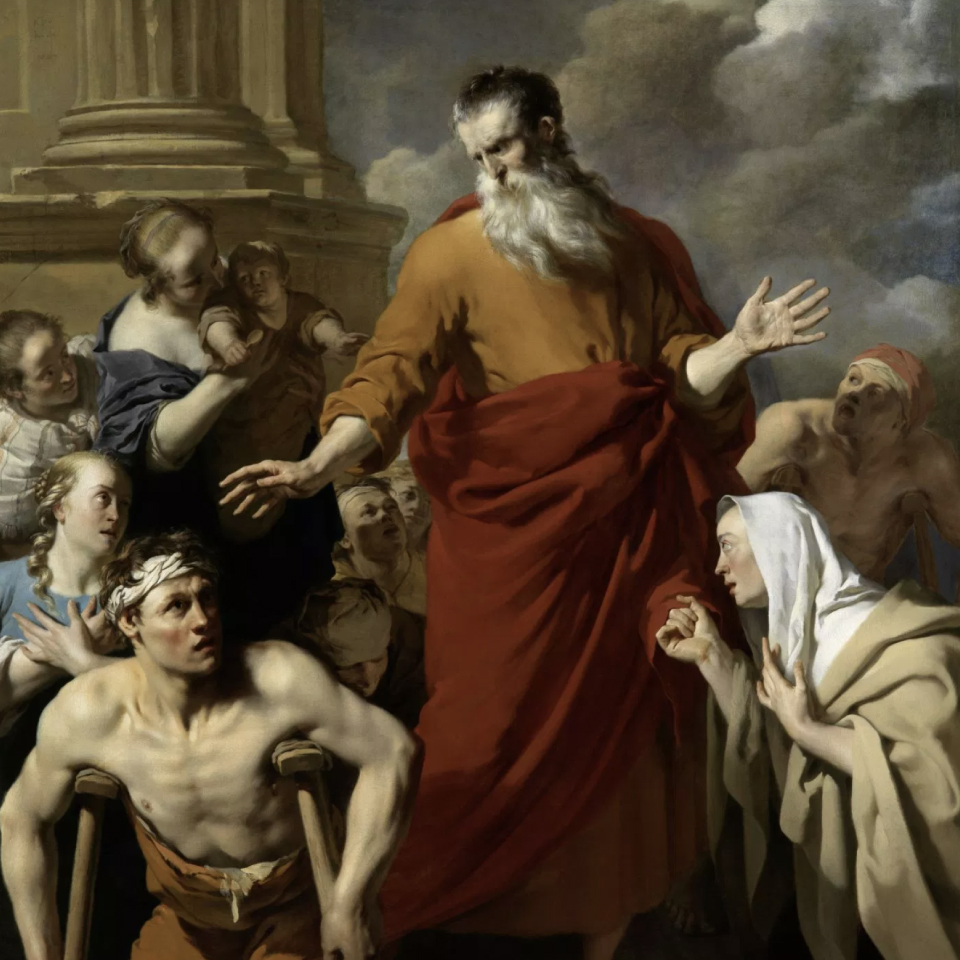When Paul and Barnabas heal a crippled man at Lystra while proclaiming the Gospel there, the miracle at first seems to backfire. By preaching in Lystra, they intended to turn the locals away from idolatry to the true worship of the one God who made the heavens and the earth—the true worship that is now open to all people, not only the Jews. Instead, the locals identify the apostles as characters from their own pantheon. They quickly bring oxen and garlands to offer sacrifice to the apostles. The miraculous healing has quickly become an occasion for false rather than true worship.
The momentary failure to reorient the religious perceptions of the locals evokes imaginable exasperation. Paul and Barnabas begin tearing their garments. They’ve missed the point! The apostles’ religious critique is lost on the locals, and they have not reoriented their religious impulses at all. Instead of revising their theology to line up with the truth to which Paul and Barnabas have just offered powerful testimony, they read Paul and Barnabas right into their pagan theological narrative.
In our own milieu, the surrounding post-Christian society can infuse us with its own moral and quasi-theological program. If we are not attentive, this program can conform our reading of the Gospel to it rather than the other way around. We might miss the offer of grace and incorporation into the life of the Trinity and instead incorporate a caricature of the Gospel into the pantheon of secular humanism. Perhaps this explains the frequency with which some show contempt for Christian teaching—especially on marriage and family life—for ostensibly Christian motivations such as withholding judgment of one’s brother.
“Whoever has my commandments and observes them is the one who loves me. Whoever loves me will be loved by my Father, and I will love him and reveal myself to him,” Christ promises his disciples in the Gospel from May 20, which was paired with the above account of Paul and Barnabas. What is Christ asking of us? What narrative do we have about the world that he seeks to reorient to himself? Christ tasks us with a certain diligence and mental energy to seek answers to these questions, or we risk responding in a manner akin to the Lystrans’ first response to Paul and Barnabas. We risk missing the “what” that Christ is actually telling us.
Part of our obedience to Christ involves discovering what his commandments are. We are tasked with giving our attention over to his teachings found in the Scriptures and Tradition of the Church in order to learn what Christ is teaching us. This demands our discipline and honesty. It also demands a docility to God’s grace infused in us through our participation in the Church’s sacramental life. Any real engagement with Christ’s teaching requires grace, as the commandments of the New Law extend beyond exterior observances and reach deep into the interior life. Through grace we can envisage our lives under the New Law not as a mere slavish obedience but as the obedience of sons through which we are taken up into the love of God.
Eventually, Paul and Barnabas get through to the Lystrans: “We are of the same nature as you, human beings. We proclaim to you good news that you should turn from these idols to the living God, who made heaven and earth and sea and all that is in them.” If we allow it—if we listen—Christ’s teaching gives us a chance to transcend our worldly customs with their limitations and corruptions. We can cease to cleave to this temporal world and begin to cleave to God.
This post was originally written by: Br. Nicholas Hartman, O.P.
